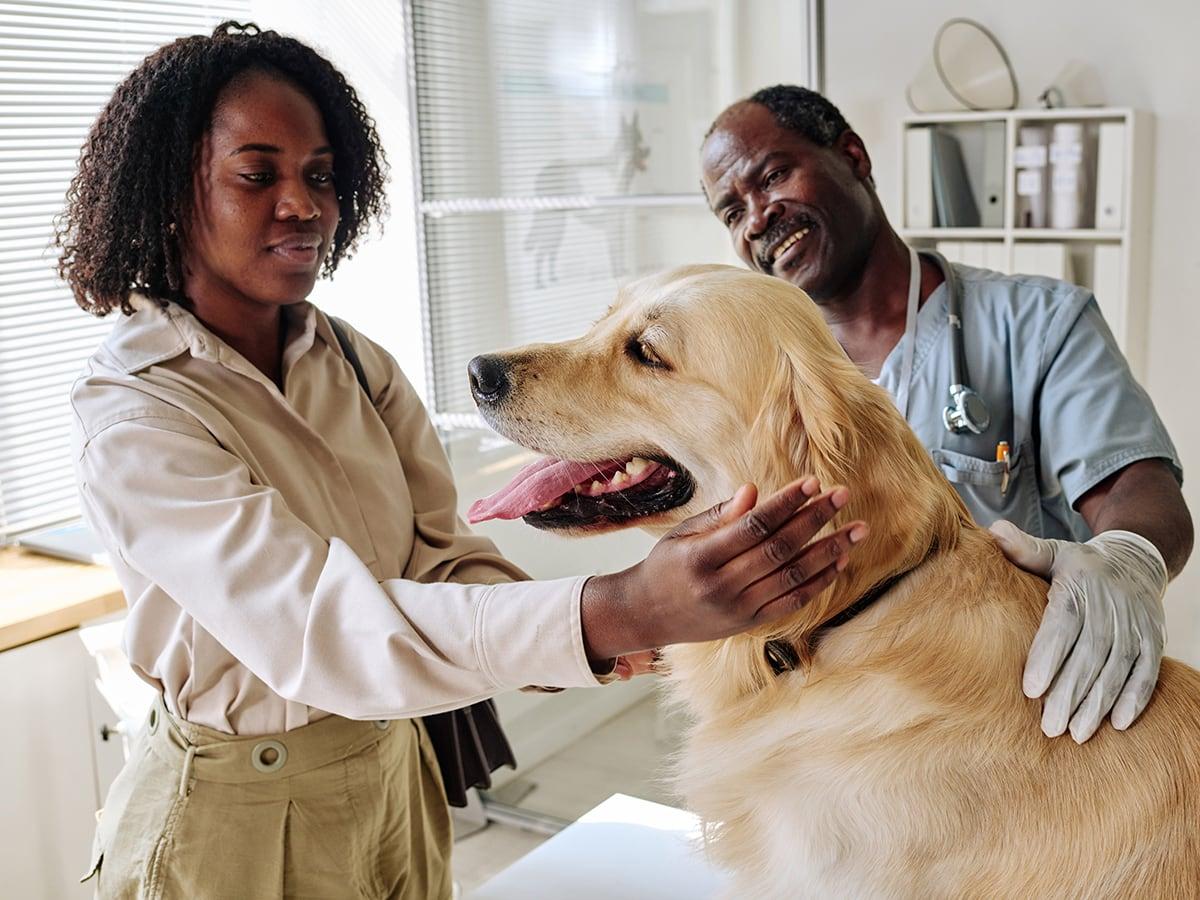As a responsible pet owner, you want to help ensure your furry friend stays healthy and happy. One way you can do this is by considering getting a pet insurance policy. An important part of caring for your pet is the annual checkup, which is a routine examination that can help detect health issues early on. Many pet insurance providers offer preventive care coverage options as an add-on for an extra cost to help cover the eligible costs of certain routine veterinary care.
In this blog post, we'll explore what annual checkups are and why they're essential for your pet's well-being. We'll also discuss what to expect during an annual checkup and how it can benefit you as a pet owner. So, let's dive in!
What are Annual Checkups For Your Pet?
An annual checkup or wellness exam is a routine exam conducted by a veterinarian to assess your pet’s overall health thoroughly. While most adult dogs typically require one checkup a year, puppies or senior dogs may need to be evaluated more regularly. Annual checkups are an important aspect of pet care, and they can help you keep your furry friend healthy and happy throughout the year. Learn more about how much pet insurance is and how to choose the best pet insurance option.
What to Expect During an Annual Checkup?
During an annual checkup, a veterinarian will typically start by asking you questions about your pet’s medical history. Then, they will examine your pet for signs of illness or disease to help catch potential health issues early on. During an exam, your veterinarian will ask questions pertaining to your furry friend’s lifestyle. The questions often revolve around your pet’s diet, exercise, behavior, habits, and water intake. The veterinarian will also measure the weight, temperature, and heartbeat of your pet. Know more about what are pre-existing conditions in pet insurance.
An annual exam typically includes a thorough physical exam; this may include checking your pet’s eyes, ears, teeth, and skin, as well as listening to their heart and lungs. Following this exam, the veterinarian may suggest preventive treatment options for your pet. Examples may include vaccines, flea and tick medication, and heartworm medication, as well as suggestions to help maintain your pet’s skin, coat, weight, or teeth. Know more about does pet insurance covers vaccines.
At times, the veterinarian may suggest additional testing be conducted on your pet to screen for other potential health issues. These diagnostic tests may include a fecal exam, heartworm test, as well as bloodwork, and urinalysis. These tests can help catch diseases early, before they become more serious, and more difficult and expensive to treat. Learn more about if pet insurance covers spaying and neutering and does pet insurance covers dental.
How to Prepare For Pet's Annual Checkup?
There are a few things pet parents can do to prepare for their pet’s annual exam:
If bringing your pet to a new clinic for the first time, bring their medical records with you. This can help your veterinarian understand which tests and vaccines your pet has already had and also help avoid unnecessary costs.
In addition, if your pet is on any medications or supplements, note the medication names or take photos that you can present to the veterinarian if necessary.
It can also be helpful to bring a fresh stool sample with you to your appointment. If this is not possible, your veterinarian can collect a sample during the exam if needed.
Last, the annual exam is a great time to ask your veterinarian any questions you may have regarding your pet’s behavior or care. Take advantage of this time to address any concerns that you may have.
The Benefits of an Annual Checkup For Your Pet
Annual exams or wellness exams can help increase the probability that potential health issues can be prevented or caught in their earliest stages by helping your veterinarian establish a baseline for your pet’s health. This can help make it easier for your veterinarian to detect changes or abnormalities in the future. Learn more about what does pet insurance cover.
When caught early, many conditions can be addressed and resolved more quickly and for a lower cost. Catching a health condition early can also lead to a better outcome for your pet.
In conclusion, annual pet exams are an important part of pet care that should not be overlooked by pet owners. These checkups allow veterinarians the option to detect potential health issues early on, help suggest preventive care services, and establish a baseline for your pet's health. By making sure your pet receives regular checkups, you can help ensure their overall health and well-being and save money on costly veterinary bills in the long run. As a responsible pet owner, annual checkups are an excellent way to show your furry friend how much you care.

Creative manager by day, pet enthusiast all the time! After 19 years with my dog (hopefully he wins the award for oldest pet in the world), I enjoy spending my days brainstorming tail-wagging content, and sniffing out the latest trends in the pet world.












